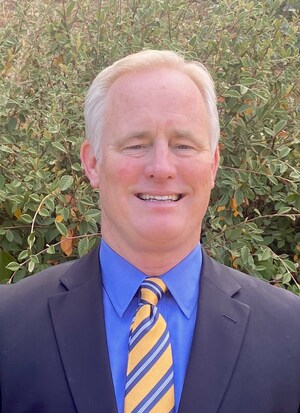HOUSTON, March 22, 2017 /PRNewswire-USNewswire/ -- Neurosurgeons hoping to successfully navigate the rapidly changing healthcare industry must advance their strategies and adapt new ways of thinking in order to continue to thrive in an evolving environment.
That's the key message in a new supplement published in the April issue of the journal Neurosurgery by guest editor Dong H. Kim, M.D., director of the Memorial Hermann Mischer Neuroscience Institute at the Texas Medical Center and chair of the Vivian L. Smith Department of Neurosurgery at McGovern Medical School at The University of Texas Health Science Center at Houston (UTHealth).
"As health care reform sharpens the focus on reducing costs and improving efficiencies, neurosurgeons have found themselves faced with important decisions regarding the future of their practices," Dr. Kim wrote in the supplement, "The Coming Changes in Neurosurgical Practice."
The supplement has been presented as a practical guide to help neurosurgeons thrive in the new landscape, and is especially targeted toward recent graduates interested in the practice of neurosurgery or those neurosurgeons who have been in private practice but are now contemplating change. Examining the industry through the lens of his own experiences, Dr. Kim lays out a roadmap of the many options available to meet new federally mandated standards for patient care while achieving positive results and improving patient satisfaction.
"We aim to answer the questions that are critically important to our colleagues by highlighting the efforts of our team as well as the work of other successful practices across the nation to provide safe, high-quality care while addressing the rising costs of health care for patients," Dr. Kim said. "What are different groups doing to enhance the quality of outcomes? How should we train the future generation to adapt easily to the transformation underway in our industry?"
"The advice outlined in the supplement serves as a useful tool for guiding neurosurgical practitioners through a new era of pay-for-performance financial incentives and the advent of population health," said Dr. Nelson M. Oyesiku, MD, PhD, FACS Editor-in-Chief of Neurosurgery, the official journal of the Congress of Neurological Surgeons.
Other papers in the supplement authored by Dr. Kim include:
- A review of neurosurgical practices in transition;
- A review and evaluation of the evolution of neurosurgeon relationships with hospitals, including options for practitioners;
- An overview of results and challenges and the examination of the role of a neurosurgeon in a new Accountable Care Organization (ACO);
- A consensus statement from six programs on neurosurgical education in a changing healthcare and regulatory environment.
Dr. Kim's recommendations were developed after first-hand experiences from guiding his own team of neurosurgeons through a successful quality improvement initiative. This initiative aimed at bolstering patient outcomes and lowering costs through measureable metrics involving all members of the practice, including advanced practice providers, trainee physicians, nurses and other staff. In the paper, "Quality Programs in Neurosurgery: The Memorial Hermann/University of Texas Experience," Dr. Kim explores in detail how the neurosurgical team designed and implemented an effective quality improvement program and measured results to foster a culture of safety with higher patient satisfaction.
To achieve optimal outcomes, the program, which launched in 2007, involved physician input and engagement to develop new protocols, the implementation of a new electronic medical record that interfaces across the inpatient and ambulatory settings and offers features tailored to the neuroscience practice, as well as structured programmatic growth and recruitment around sub-specialization.
In addition, the team focused on controlling and reducing rising costs by working to cut down a patient's length of stay and reducing the cost of surgical implants through a partnership between physicians and Memorial Hermann Health System to limit the number of surgical device vendors in an effort to achieve greater savings. The initiative yielded impressive results. Patient satisfaction scores have remained above the 75th percentile, as compared nationally. Patient safety outcomes improved dramatically with neurosurgical mortality rates now ranking in the top 10 among peer institutions nationwide. In addition, the amount of time patients spend in the hospital has also declined, resulting in significant cost savings and improved patient flow.
The improvement initiative, which has now matured and become integrated into basic clinical processes, not only improved outcomes and lowered overall costs for patients, it also resulted in significant growth in patient volumes. The program now includes a total of 22 neurosurgeons working across 25 different locations and involves more than 100 neuroscience providers. Approximately 7,000 surgeries are performed by the group every year.
"We believe that persistence and constant effort over a long period of time was required to achieve permanent changes and develop the desired culture," Dr. Kim said. "The changes that have already occurred in the U.S. healthcare system, as well as those yet to come, will continue to place the focus on ensuring quality outcomes and performance efficiency. We believe that our efforts have helped our program meet the challenges of the future, and I hope that our experience can prove useful to others undertaking similar initiatives."
Read more in Neurosurgery.
Media Contact:
Rhiannon Collette // 713.704.5859
[email protected]
SOURCE Memorial Hermann Health System
WANT YOUR COMPANY'S NEWS FEATURED ON PRNEWSWIRE.COM?
Newsrooms &
Influencers
Digital Media
Outlets
Journalists
Opted In






Share this article